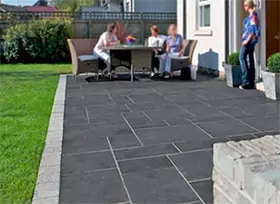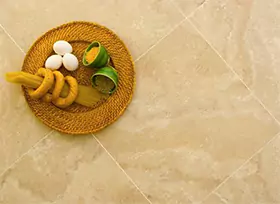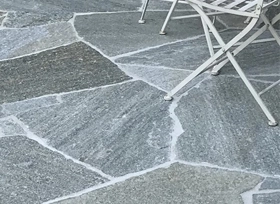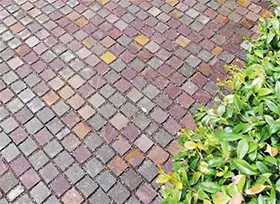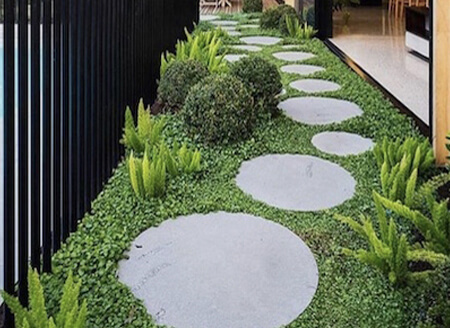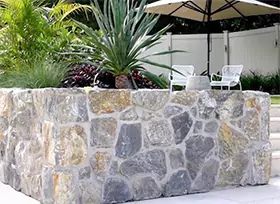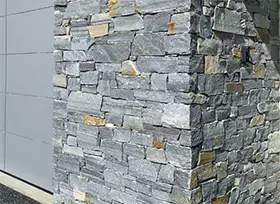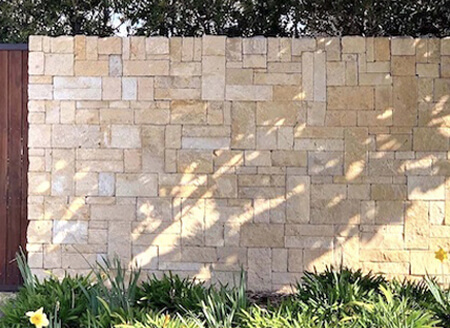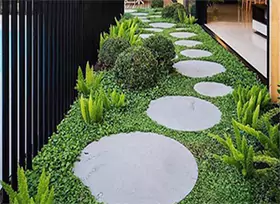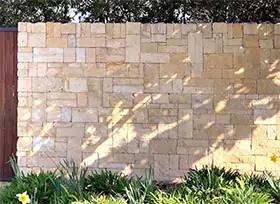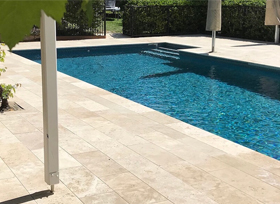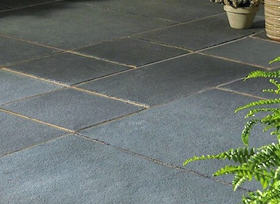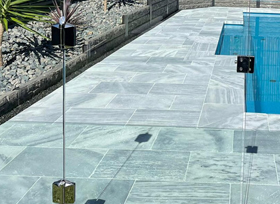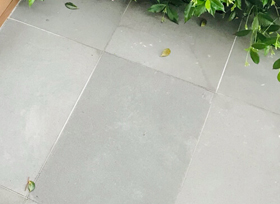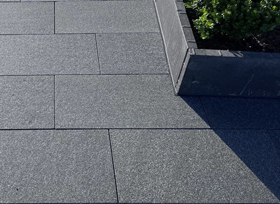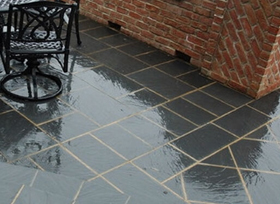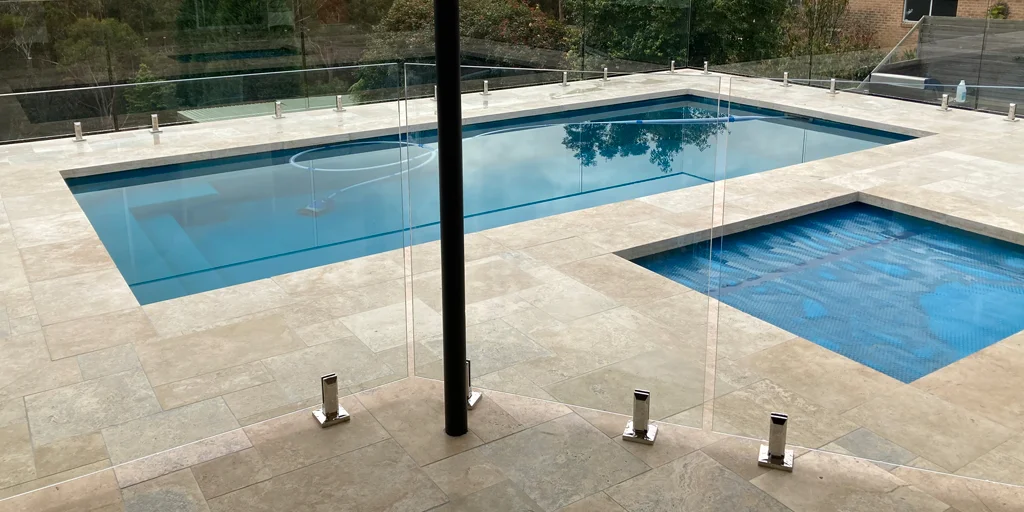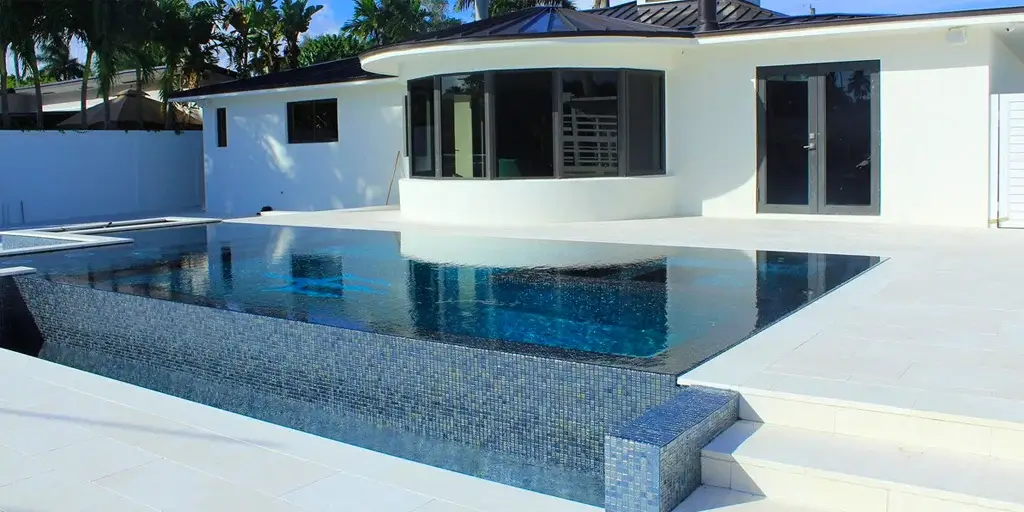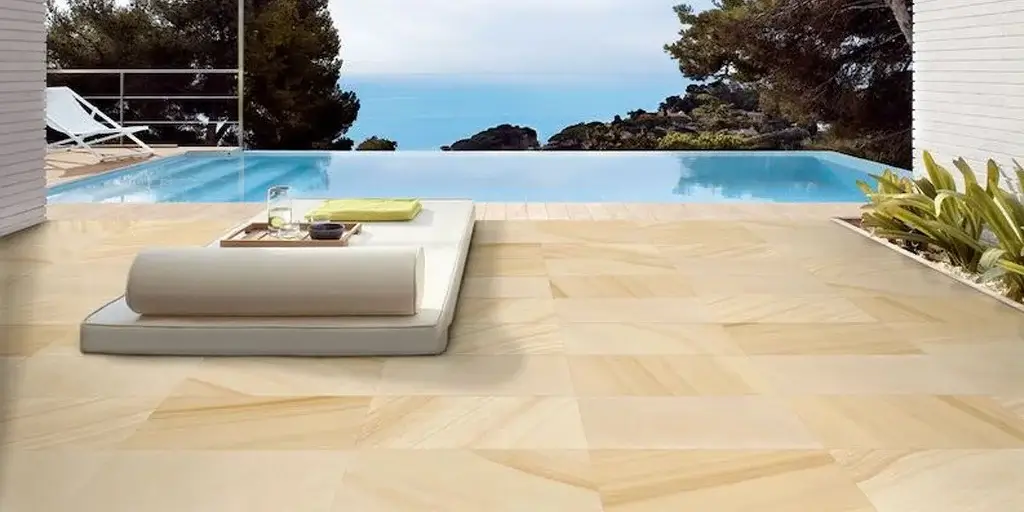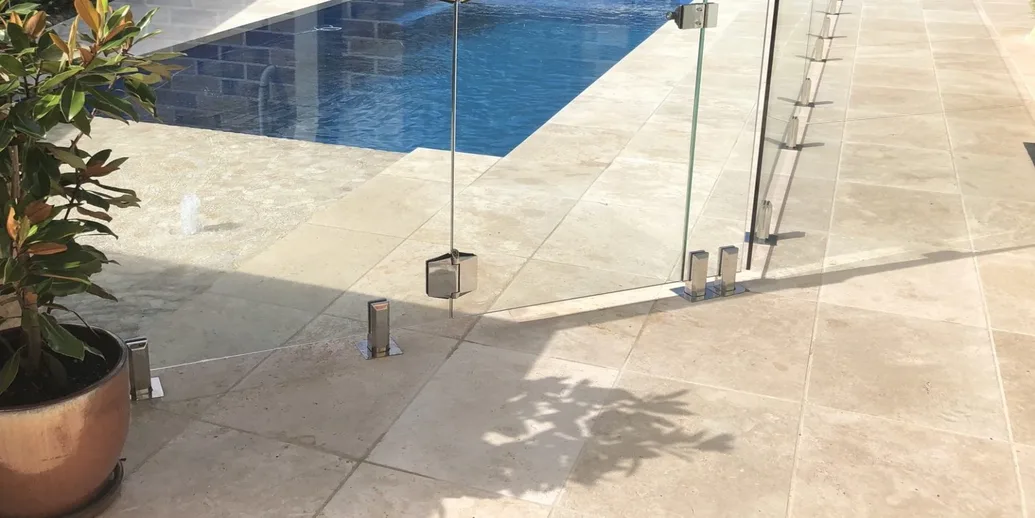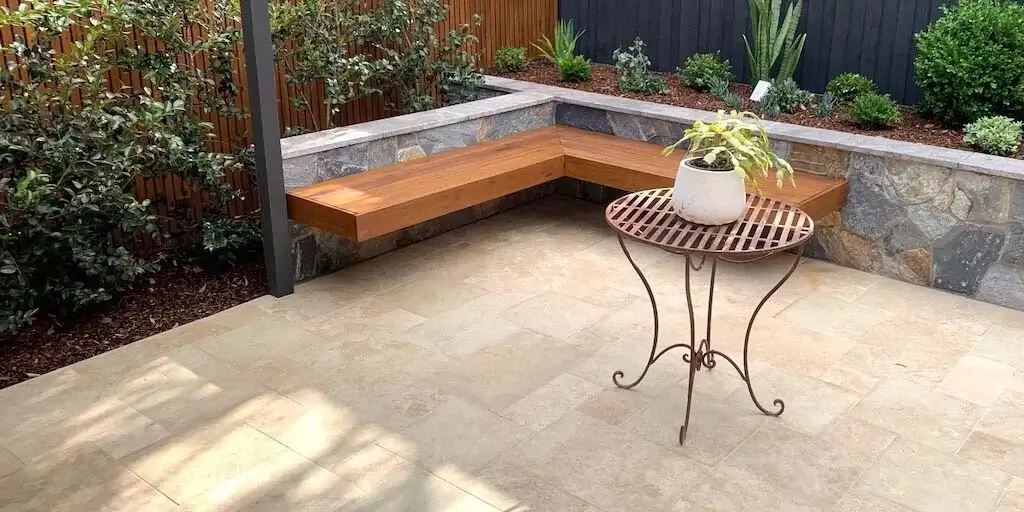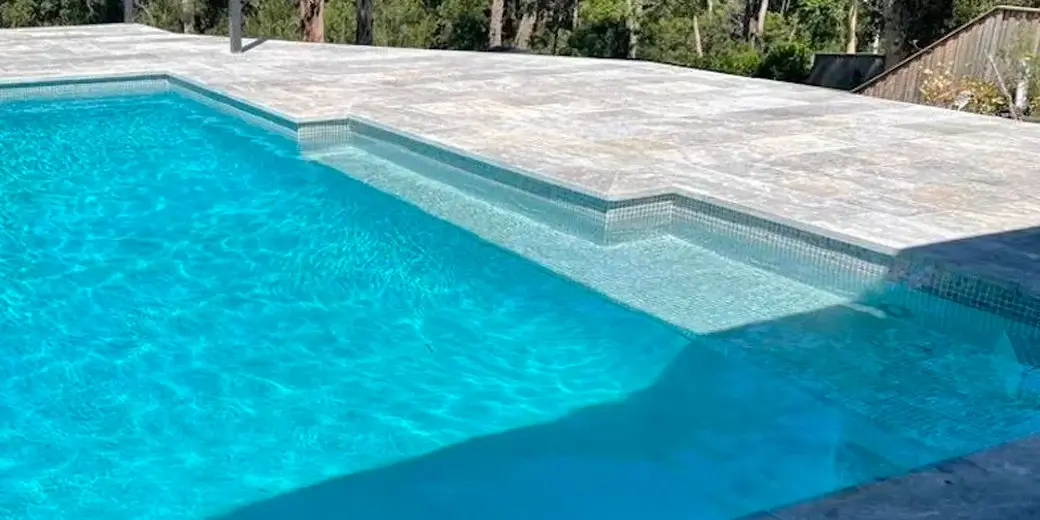Homes with swimming pools are often faced with the task of keeping the deck tiles or pool surrounds clean. Should I use vinegar to get rid of dust, or should I use abrasive or pumice stone to remove slippery moss and algae; such questions often haunt homeowners, isn't it? With the presence of so many cleaning solutions and chemicals in the market, it does get confusing what to choose. Let us address the common mistakes that people do to keep the pool surround tiles clean and share valuable tips to effectively maintain the pool deck tiles.
Why should you clean pool deck tiles?
You and your guests will feel more at ease if your pool deck is kept in the best condition possible. Better appearance is the main reason to make sure you schedule routine pool deck cleaning for your home.
Surfaces become slick due to impurities like mould, moss, and others. Since they can be quite dangerous when wet or if you've neglected to fix cracks and other similar concerns, pool decks should always be kept as clean as possible and free of slick moss and other debris.
Mould, pollen, and dust irritate those who have allergies or other comparable medical conditions. The longer you put off critical maintenance, you can notice that your allergies and respiratory issues get worse even when you're outside by your pool deck! Routine cleaning also gets rid of unpleasant odours from the pool surface.
Every time there is a wind gust, debris from the pool deck, such as dust, dirt, leaves, and twigs get thrown into the water. Therefore, a pool deck needs to be kept clean. In addition to making swimming unpleasant, the debris makes the pump and filter of the pool work too hard. The difficulty of pumping water to the filter increases with the amount of debris in the pool, as does the frequency with which the filter needs to be cleaned and maintained.
Various methods of cleaning pool tiles
Be aware that depending on the materials and state of the deck, you could need to modify your pool deck cleaning procedures. For example, older wood may require cautious handling to prevent aggravating minor fractures, splits, and other damage. On the other hand, cracked concrete can require extra cleaning to get rid of the dirt and debris that is trapped within it. Take note of some advice on the finest ways to maintain a pool deck outside your house.
- Make sure the pool deck at your house has been fully cleaned and cleansed before cleaning it. Dirt, dust, and other debris should be removed with an outdoor broom with firm bristles. This initial step makes sure that debris won't weaken your cleaning agents or abrade the materials of your pool deck while you clean it.
Cleaning pool deck with vinegar
- Mould and mildew love to grow on wooden decks! Use a spray bottle or garden hose attachment to apply a solution of one cup of white vinegar to one gallon of water to kill the pollutants.
- To eliminate the mould and mildew and loosen its roots and spores, you might need to let the vinegar solution soak for a few minutes. Then scrape with a soft-bristled scrub brush to remove the growth.
Cleaning pool tiles with bleach
- As stated, use oxygenated bleach rather than chlorine bleach on concrete, stone, and brick. In a gallon of warm water, add a cup. Add a little amount of dish soap to the pool deck if it's very grimy; make sure it's dish soap, not dishwashing detergent, and choose a brand without additional skin creams.
- Spread this mixture evenly across the deck after completely mixing it. As necessary, use an extra solution to cover the entire deck.
- Allow the solution to sit for a few minutes so that it can permeate into the concrete's pores and pits and dissolve any heavy grime and sludge. surfaces. After that, use an exterior scrub brush to scrub the deck thoroughly.
- After scrubbing, rinse the cleaning agent off using a garden hose. Make sure to rinse it away from your gorgeous lawn and toward your driveway or walkway!
Other methods of cleaning pool deck
- Use muriatic acid, which is available at many home improvement and janitorial supply stores, if any rust spots are still visible.
- For oil stains, pick a commercial-grade degreaser; these are also available at home improvement or janitorial supply stores. When handling muriatic acid, use caution and wear thick rubber gloves, breathing gear, and protective eyewear. Follow the directions on the packaging since some products require dilution while others can be used straight on the stain. If necessary, scrub the stain with a stiff-bristled brush before rinsing.
- Look for cleaning products made exclusively for the material in your local home improvement store if your deck is very dirty or has persistent stains. Try a vinegar or oxygenated bleach solution first since these can sometimes be expensive and occasionally more potent than necessary!
- Use a clean sponge bathed in lime juice and baking soda to remove rust and other ugly stains from metal pool stairs and railings! This mixture aids in removing rust, corrosion, and other corrosive residues.
Useful tips to keep in mind while cleaning swimming pool tile deck:
- To clean your pool deck, use a pristine outdoor scrub brush. Concrete, wood, and patio pavers cannot be cleaned with string mops, and inside brooms risk spreading the dirt rather than getting rid of it.
- When washing the deck of a swimming pool, take care not to allow the cleaning solution dry on the surface before rinsing. In addition to causing streaks and stains, dried detergent can adhere to the deck and leave behind a sticky residue that draws dirt much more than before!
- It's common for dirt and grime to hide cracks, chips, and other damage to the pool surface. Take immediate action if you discover this damage after your final rinse is complete. Concrete and other similar surfaces develop wider cracks the longer they are ignored.
- After cleaning the pool deck, it is advised that you seal the surface to prevent further deterioration. Select a sealer specifically made for the material of the pool deck. Before cleaning the pool deck, be aware of the weather! While a gentle drizzle would not interfere with your cleaning efforts, a heavier downpour could wash your cleaning agent away. Additionally, extremely cold temperatures might cause rinse water to freeze, making it challenging to wash away.
- Never scrub or use aggressive cleaning agents on pool walls, slides made of plastic or fibreglass, or any other surfaces. To prevent damage, pick a mild cleaner designed for fibreglass pool accessories.
Conclusion
You can avoid the time-consuming and costly process of repairing and retiling the pool deck by routinely cleaning them and taking care of any stains or scaling as they appear. Remember, for wood and concrete decks and to get rid of moss, algae, and other growth around the pool, use oxygenated bleach that doesn't include chlorine or a diluted vinegar solution. For dirty decks, add dish soap. For cleaning the pits and pores of stone, concrete, and brick, use pressure washing equipment. Following the above-stated techniques will help you keep your pool tiles clean and maintained.
*Disclaimer: All information and advice given above in the blog are to the best of our knowledge. Please reconfirm at your end before execution.


